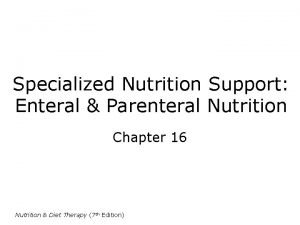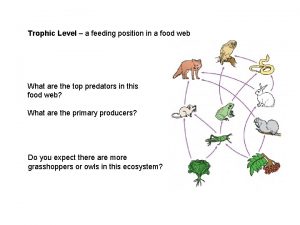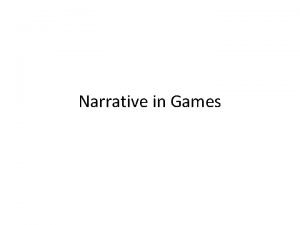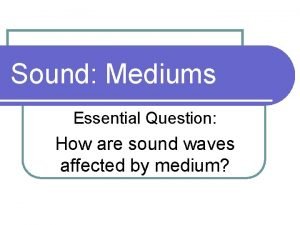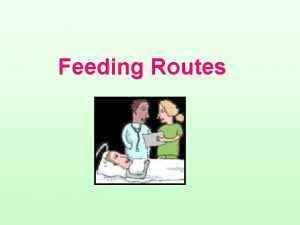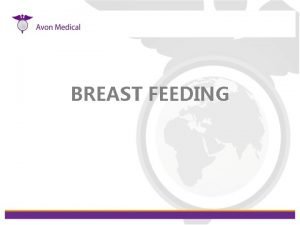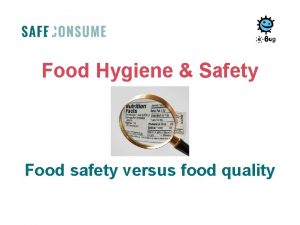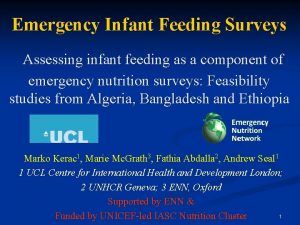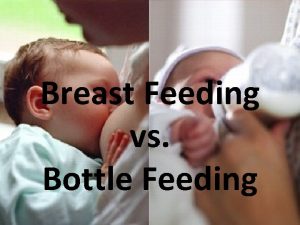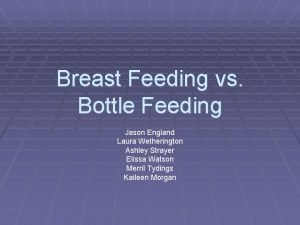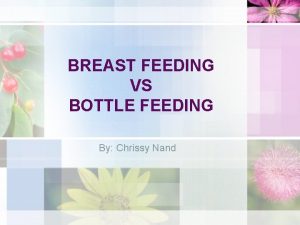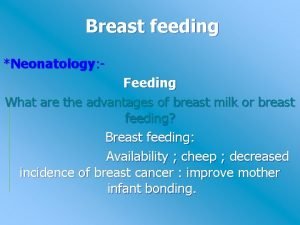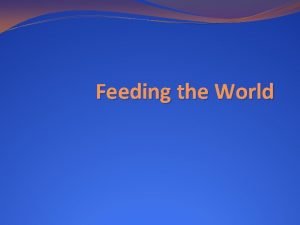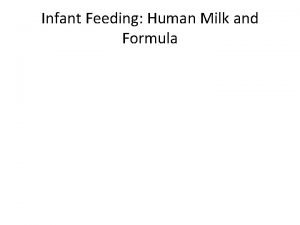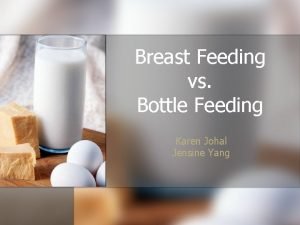Story Food versus Feeding the Family Food Different























































- Slides: 55

“Story Food” versus “Feeding the Family Food”: Different Strokes for Different Folks? Dr. David Hughes Emeritus Professor of Food Marketing Nuffield Contemporary Scholars Conference Te Papa Tongarewa, Wellington, NZ Monday, March 7 th, 2011






Top Global Grocery Profit Performers in 2009 Profit Margin % ROCE % Philip Morris Int. 40 47 Altria Group 36 38 BAT 32 24 AB In. Bev 31 14 Glaxo. Smith. Kline 30 31 Coca-Cola 29 24 Diageo 28 21 Johnson & Johnson 26 25 SABMiller 25 14 Colgate -Palmolive 24 46 Reckitt Benckiser 24 19 Procter & Gamble 24 56 Pernod Ricard 23 9 Reynolds American 21 16 Pepsi. Co 19 33 Profit Margin = EBIT after earnings from associates and other exceptional items ROCE = Return on Capital Employed Source: OC&C UK, 2010

Top Global Food Profit Performers, 2009 Profit Margin % ROCE % Group Danone 16 General Mills 16 Kellogg’s 16 12 19 28 Campbell Soup 16 Nestlé 15 HJ Heinz 15 Kraft Foods 14 Unilever 14 Cadbury 13 Con. Agra 12 Profit Margin = EBIT after earnings from associates and other exceptional items ROCE = Return on Capital Employed Source: OC&C UK, 2010 35 20 24 12 24 15 18


Proprietary Technology and Demand Chain Squeeze Life Science Companies Ownership of Genetic Rights market power polarised nursery people growers/farmers distributors manufacturers etc. get squeezed! Major Global Food Retailers and Food Service Firms Ownership of Information on Shopping Behaviour

In the Dock: The Modern Global Food and Drink Industry The Charge? Threatening Health & Well-Being of: - The Planet - issues relating to sustainability, climate change, resource conservation, biodiversity, etc. - Consumers – food safety, obesity - Food System Participants – abusing farm animals, threatening smaller-scale farmers

For the Prosecution



Hugh Fearnley-Whittingstall



% Obesity Levels in Selected Countries % Source: The Financial Times, September 9 th, 2010

2010 Dietary Guidelines for Americans • eat less, exercise more • eat more: – plants i. e. fruit, vegetables – pulses, whole grains, nuts & cereals – seafood, low/no fat milk products • eat moderately (government code for eat less) – lean meats, poultry and eggs • eat significantly less – sugar, salt, solid fats, refined grains

Financial Times Report, October 2/3 rd , 2010 Nestlé To Invest $500 million in Health Science • “The Swiss giant’s announcement marks an implicit step towards the recognition by Big Food that it bears responsibility for the unremitting worldwide rise in obesity – though food manufacturers are not yet ready to admit that their products are harmful, as the tobacco industry does. . . ”


“Food Has Never Been Safer” US: Obama nominates food safety undersecretary 27 January 2010 | Source: just-food. com President Barack Obama has announced that he plans to nominate USDA veteran Elisabeth Hagen as his first undersecretary for food safety. US salmonella scare: farm inspections reveal manure, mice and maggots Calls for main egg producers to be better regulated after two firms at centre of scare revealed to have breached basic hygiene guardian. co. uk Tuesday 31 August 2010


“Consumers are blissfully ignorant of the existence of farm assurance and what it stands for” UK Food Standards Agency Survey, 2002 • so, traceability schemes and requirements are a waste of time and money, with most costs carried by the primary producer? • consumers simply expect that the food industry has food safety “sorted”. They believe as a matter of course that we know exactly where all our ingredients come from. If they find out that we don’t, then, they are outraged.

Wal*Mart Announces Global Sustainable Agriculture Goals, October, 2010 Ø Support Farmers & Their Communities Ø selling $1 billion in food from smaller-scale farmers Ø training 1 million farmers/workers in sustainable farming practices Ø increasing income of above by 10 -15% Ø in USA, doubling sale of locally-sourced produce Ø Produce More Food with Fewer Resources + Less Waste Ø over next 5 years invest $1 billion in its global fresh supply chain Ø reduce food waste in stores worldwide by 10 -15% Ø introduce Sustainable Produce Assessment for suppliers Ø Sustainably Source Key Agriculture Products Ø all Wal*Mart brand palm oil sustainably sourced by 2015 Ø expand existing beef sourcing practice in Brazil with zero tolerance on deforestation






Nestlé S. A. to Receive 2011 World Environment Centre Gold Medal for International Corporate Achievement in Sustainable Development WEC's independent jury selects Nestlé S. A. as the 2011 recipient of the Gold Medal Award







Reasons for paying more for food and drink Thinking about food and drink that you are willing to pay more for, what are the most important reasons for doing so? • Key Findings • • As many as 1 in 7 (14%) shoppers are willing to pay more for organic food 1 in 10 are willing to pay more for ethically produced goods and a similar number (9%) for goods that are better for the environment.

World Population: Who's Going Up and Who’s Going Down? 2010 World Africa Asia Europe LAC* North America Oceania 6. 9 1. 0 4. 1 0. 7 0. 6 0. 3 0. 04 *Latin America & Caribbean Source: UN (population scenario planning) 2030 - billion 8. 2 1. 5 4. 8 0. 7 0. 4 0. 04 2050 9. 0 2. 0 5. 1 0. 7 0. 8 0. 5 0. 05





The Future of Food and Farming: Drivers of Change • • • Global population increase from 7 billion in 2010, to 8 billion in 2030 and 9 billion by 2050. Dietary changes (increased global consumption of meat and dairy) will require substantially more resources than in the past. Future governance of global food system will have a big impact on supply and demand balance: – National food security policies – Production subsidies, trade restrictions – Growth of new food superpowers (e. g. BRIC) – Control of increasing areas of land for food production – Adequacy of current global international institutions Climate change Competition for key resources – Land (urban versus rural versus industrial) – Energy (e. g. green, price/availability of fossil fuel) – water Values and ethical stances of consumers – e. g. acceptance of new technology London, UK, 2011

The Future of Food and Farming: High Level Conclusions 1. More food from less. Contain demand for meat and dairy (code for reducing consumption in Developed countries. Minimise waste. Improve political and economic governance. 2. Climate change initiatives and achieving sustainability in global food system inextricably linked. 3. Revitalise moves to end hunger – reduce unfair subsidies, focus on rural development 4. All policy options open – code for embracing new technology. 5. Food self-sufficiency at national level rejected but maximise benefits of globalisation to ensure food supply. London, UK, 2011

Consumer Trends: Migration to the Poles “Feed the Family Food” Global High Tech Drudge/Chore Shop Consumer Shopper New and Improved Ready-to-Eat Fast Food Fuel Food Just Me Low Price Good For You All Year Intensive “Experience & Story Food” Local High Touch Leisure/Experience Shop Citizen Shopper Traditional Natural/Unprocessed Slow Food Story Food Friends/Family Premium Price Naughty but Nice Seasonal Extensive

“Feed the Family” or “Story” Food? Depends on Range of Factors Including: • Income • Urban or rural composition of population • Family composition (e. g. children or not, help in the home. . . grandparents in China) • Meal occasion • Strength of national/regional food culture and food heritage




Impact of Campaign • 500, 000 more households bought Yeo Valley products in the 12 weeks to December 25 th, 2010, than in preceding period • Outperformed total yoghurt market by 250% • Viewed 2 million times on You. Tube (Yeo. Tube!) • Sales boosted by £ 10 million – equivalent to 15% year-on-year – for a campaign investment of £ 3 million • Advertisement aired 7 times during the X Factor (ITV 1) and 25 ITV 2 slots



We Want a Better World! Products which are: • better for me – more convenient – better tasting – better price • better for my well-being and body – feel good – look good – safer for my children • better for the world and my locale – environment – Third World – my countryside • better for Bambi/Flipper/Little Nemo/Babe/Bo Peep

CONTACT POINTS: e-mail profdavidhughes@aol. com telephone numbers office +44(0)1600 715957 fax +44(0)1600 712544 mobile +44(0)7798 558276 Check my latest podcast at www. profdavidhughes. com
 Continuous feeding vs bolus feeding
Continuous feeding vs bolus feeding Different angle different story
Different angle different story Feeding position in a food chain
Feeding position in a food chain Narrative versus story
Narrative versus story Short stories for drama
Short stories for drama Why do different polymers have different properties
Why do different polymers have different properties Technicolor test
Technicolor test Sound will travel at different speeds in different mediums.
Sound will travel at different speeds in different mediums. Lrefraction
Lrefraction Cultural relativism
Cultural relativism Acids and bases song
Acids and bases song Manufactured boards examples
Manufactured boards examples We are all different but the same
We are all different but the same Argumenterande tal struktur
Argumenterande tal struktur Hát kết hợp bộ gõ cơ thể
Hát kết hợp bộ gõ cơ thể Slidetodoc
Slidetodoc Bổ thể
Bổ thể Tỉ lệ cơ thể trẻ em
Tỉ lệ cơ thể trẻ em Gấu đi như thế nào
Gấu đi như thế nào Glasgow thang điểm
Glasgow thang điểm Chúa yêu trần thế alleluia
Chúa yêu trần thế alleluia Môn thể thao bắt đầu bằng chữ đua
Môn thể thao bắt đầu bằng chữ đua Thế nào là hệ số cao nhất
Thế nào là hệ số cao nhất Các châu lục và đại dương trên thế giới
Các châu lục và đại dương trên thế giới Công thức tính thế năng
Công thức tính thế năng Trời xanh đây là của chúng ta thể thơ
Trời xanh đây là của chúng ta thể thơ Mật thư tọa độ 5x5
Mật thư tọa độ 5x5 Làm thế nào để 102-1=99
Làm thế nào để 102-1=99 Phản ứng thế ankan
Phản ứng thế ankan Các châu lục và đại dương trên thế giới
Các châu lục và đại dương trên thế giới Thể thơ truyền thống
Thể thơ truyền thống Quá trình desamine hóa có thể tạo ra
Quá trình desamine hóa có thể tạo ra Một số thể thơ truyền thống
Một số thể thơ truyền thống Cái miệng nó xinh thế
Cái miệng nó xinh thế Vẽ hình chiếu vuông góc của vật thể sau
Vẽ hình chiếu vuông góc của vật thể sau Thế nào là sự mỏi cơ
Thế nào là sự mỏi cơ đặc điểm cơ thể của người tối cổ
đặc điểm cơ thể của người tối cổ Ví dụ về giọng cùng tên
Ví dụ về giọng cùng tên Vẽ hình chiếu đứng bằng cạnh của vật thể
Vẽ hình chiếu đứng bằng cạnh của vật thể Phối cảnh
Phối cảnh Thẻ vin
Thẻ vin đại từ thay thế
đại từ thay thế điện thế nghỉ
điện thế nghỉ Tư thế ngồi viết
Tư thế ngồi viết Diễn thế sinh thái là
Diễn thế sinh thái là Dot
Dot So nguyen to
So nguyen to Tư thế ngồi viết
Tư thế ngồi viết Lời thề hippocrates
Lời thề hippocrates Thiếu nhi thế giới liên hoan
Thiếu nhi thế giới liên hoan ưu thế lai là gì
ưu thế lai là gì Khi nào hổ con có thể sống độc lập
Khi nào hổ con có thể sống độc lập Sự nuôi và dạy con của hổ
Sự nuôi và dạy con của hổ Sơ đồ cơ thể người
Sơ đồ cơ thể người Từ ngữ thể hiện lòng nhân hậu
Từ ngữ thể hiện lòng nhân hậu Thế nào là mạng điện lắp đặt kiểu nổi
Thế nào là mạng điện lắp đặt kiểu nổi
